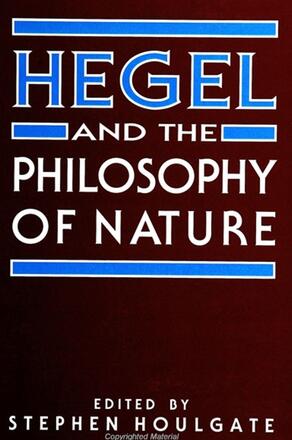
Hegel and the Philosophy of Nature
Alternative formats available from:
Confirms that Hegel's philosophy of nature continues to have great significance for our understanding of the natural world.
Description
Hegel and the Philosophy of Nature is an important new study of Hegel's profound philosophical account of the natural world. It examines Hegel's alleged idealism, his concepts of space and time, the conception of speculative geometry, his critical engagement with Kant's Metaphysical Foundations of Natural Science, his critique of Newtonian science, his concept of evolution, the notion of Aufhebung, and his infamous theory of planetary objects. The book confirms that, far from being surpassed by nineteenth- and twentieth-century scientific developments, Hegel's philosophy of nature continues to have great significance for our understanding of the natural world.
[Contributors include Daniel O. Dahlstrom, Olivier Depré, Mauro Nasti De Vincentis, Brigitte Falkenburg, Cinzia Ferrini, Edward Halper, Errol E. Harris, William Maker, Lawrence S. Stepelevich, Donald Phillip Verene, Kenneth R. Westphal, and Richard Dien Winfield. ]
Stephen Houlgate is Professor of Philosophy at the University of Warwick and is the author of Hegel, Nietzsche and the Criticism of Metaphysics and Freedom, Truth and History: An Introduction to Hegel's Philosophy.
Reviews
"This is the most careful and penetrating analysis of Hegel's philosophy of nature, as it flows from his Logic and what should be called his scientific method. " — Oliva Blanchette, Boston College
"In addition to Hegel scholars, this book will be of interest to people who are thinking about the relationship of science to nature and how we moderns should be approaching nature. The ecological revolution has returned the whole question of a philosophy of nature to the arena of theoretical discourse. " — John W. Burbidge, author of Hegel on Logic and Religion